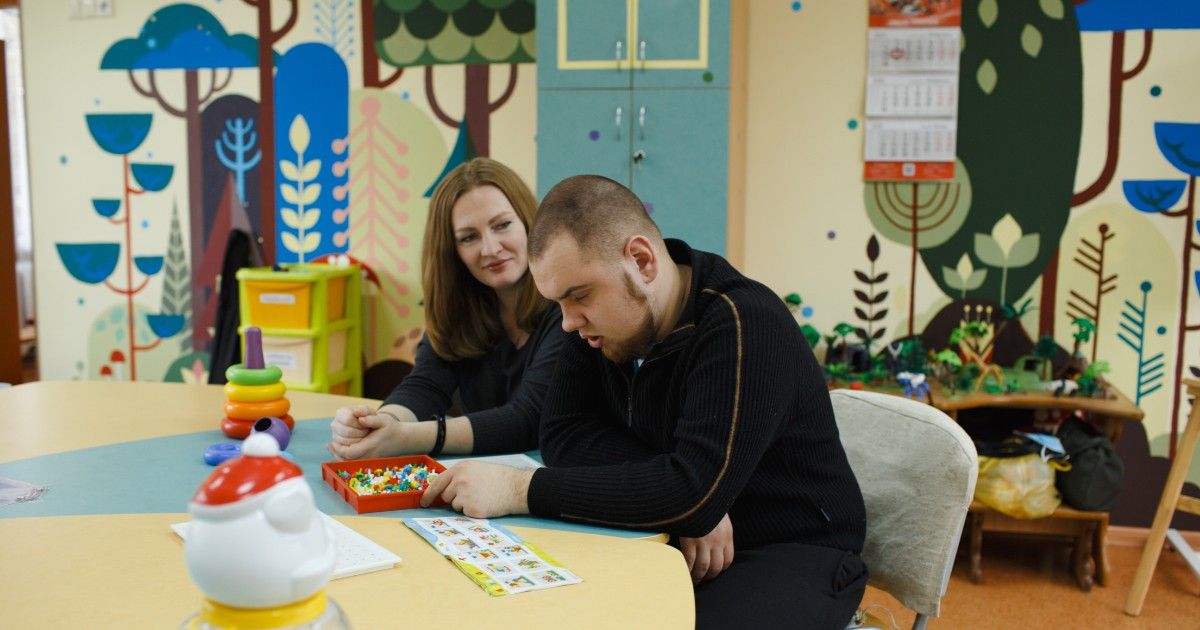Autism spectrum disorder (ASD) is typically detected and diagnosed in children by the age of 2, though some people are not diagnosed until adolescence or adulthood. [1]
Diagnosing ASD is challenging as there is no medical test that conclusively proves a person has autism. Doctors must analyze a child’s developmental history, general behavior, and responses to certain questions to make a diagnosis. [1]
With an increasing number of people over the age of 50 receiving a diagnosis of ASD [2], the question arises: Can autism develop in later life?

Can you get autism in later life?
If you’ve noticed symptoms of autism in later life and are wondering if you can become autistic in adulthood, the answer is no you cannot.
Autism spectrum disorder (ASD) arises from atypical brain development and because adult brains are already fully formed, a person cannot develop autism as such. However, it is possible that you always had autism and it went undetected until your adult life.
ASD affects people differently, but core behavioral aspects include poor social communication and repetitive restricted behaviors. [2] Many adults diagnosed with ASD are already receiving treatment for social problems, anxiety, and mood fluctuations. They typically feel unsupported, isolated, and have poor employment prospects. [2]
However, receiving an ASD diagnosis later in life can leave a person feeling vindicated and provide them with a much-needed explanation for their past experiences. [2] Subjects of a 2019 study conducted in Health Psychology & Behavioral Medicine spoke of their relief at receiving the diagnosis with one person describing it as a ‘eureka’ moment. [2]
An autism diagnosis can bring a sense of validation and understanding to individuals who may have struggled with social interactions, sensory sensitivities, and other challenges throughout their lives. It can help them make sense of their experiences and provide answers to questions about why they may have faced certain difficulties.
While the diagnoses felt validating for participants of the 2019 study, it brought mixed emotions as they felt they were not provided with any therapy or other supportive interventions following the study. [2]
Support can help individuals with autism develop strategies and skills to manage challenges associated with the condition. This might include social skills training, sensory regulation techniques, and strategies for managing anxiety or stress.
With the right support, individuals with autism can improve their overall quality of life. They may be better equipped to pursue education, employment, and relationships, and they can find fulfillment and happiness in these areas.
Signs of autism in adults
According to the British National Health Service (NHS), common signs of autism include: [3]
- Deep anxiety about social situations
- Finding it difficult to relate to others’ feelings or thoughts
- Finding it hard to make friends
- Seemingly blunt, rude,or disinterested in other people
- Finding it hard to express how you feel
- Taking things literally – not understanding sarcasm, irony,or expressions such as ‘break a leg’
- Sticking to the same routine every day and feeling anxious if it is altered
- Not understanding social rules such as interrupting others
- Avoiding eye contact
- Liking to plan everything carefully before doingsomething
- Having an obsessive interest in certain subjects or activities
- Being attuned to small details, patterns, smells,or sounds that others are not
- Not enjoying close contact with others or showing signs of distress if someone gets too close to you.
Autism in women
Autism can be presented differently by women, as they may have learned to: [3]
- Hide their signs of autism to fit in better – this can be done by mimicking other people’s behavior.
- Be quieter and hide their feelings.
- Cope better with social situations.
- Hide their repetitive behaviors.
These features are encompassed by a term called, Autism Masking, and they can make it harder to identify ASD in women compared with men. [3]
- Screening and Diagnosis | Autism Spectrum Disorder (ASD) | NCBDDD. (2022, March 31). Centers for Disease Control and Prevention. https://www.cdc.gov/ncbddd/autism/screening.html.
- Stagg, S. D., & Belcher, H. (2019). Living with autism without knowing: receiving a diagnosis in later life. Health Psychology and Behavioral Medicine, 7(1), 348–361. https://doi.org/10.1080/21642850.2019.1684920
- Website, N. (2023b, March 8). Signs of autism in adults. nhs.uk. https://www.nhs.uk/conditions/autism/signs/adults/
Our Medical Affairs Team is a dedicated group of medical professionals with diverse and extensive clinical experience who actively contribute to the development of our content, products, and services. They meticulously evaluate and review all medical content before publication to ensure it is medically accurate and aligned with current discussions and research developments in mental health. For more information, visit our Editorial Policy.
MentalHealth.com is a health technology company guiding people towards self-understanding and connection. The platform provides reliable resources, accessible services, and nurturing communities. Its purpose is to educate, support, and empower people in their pursuit of well-being.
Samir Kadri is a medical writer with a non-profit sector background, committed to raising awareness about mental health.
Morgan Blair is a licensed therapist, writer and medical reviewer, holding a master’s degree in clinical mental health counseling from Northwestern University.
Further Reading
Our Medical Affairs Team is a dedicated group of medical professionals with diverse and extensive clinical experience who actively contribute to the development of our content, products, and services. They meticulously evaluate and review all medical content before publication to ensure it is medically accurate and aligned with current discussions and research developments in mental health. For more information, visit our Editorial Policy.
MentalHealth.com is a health technology company guiding people towards self-understanding and connection. The platform provides reliable resources, accessible services, and nurturing communities. Its purpose is to educate, support, and empower people in their pursuit of well-being.